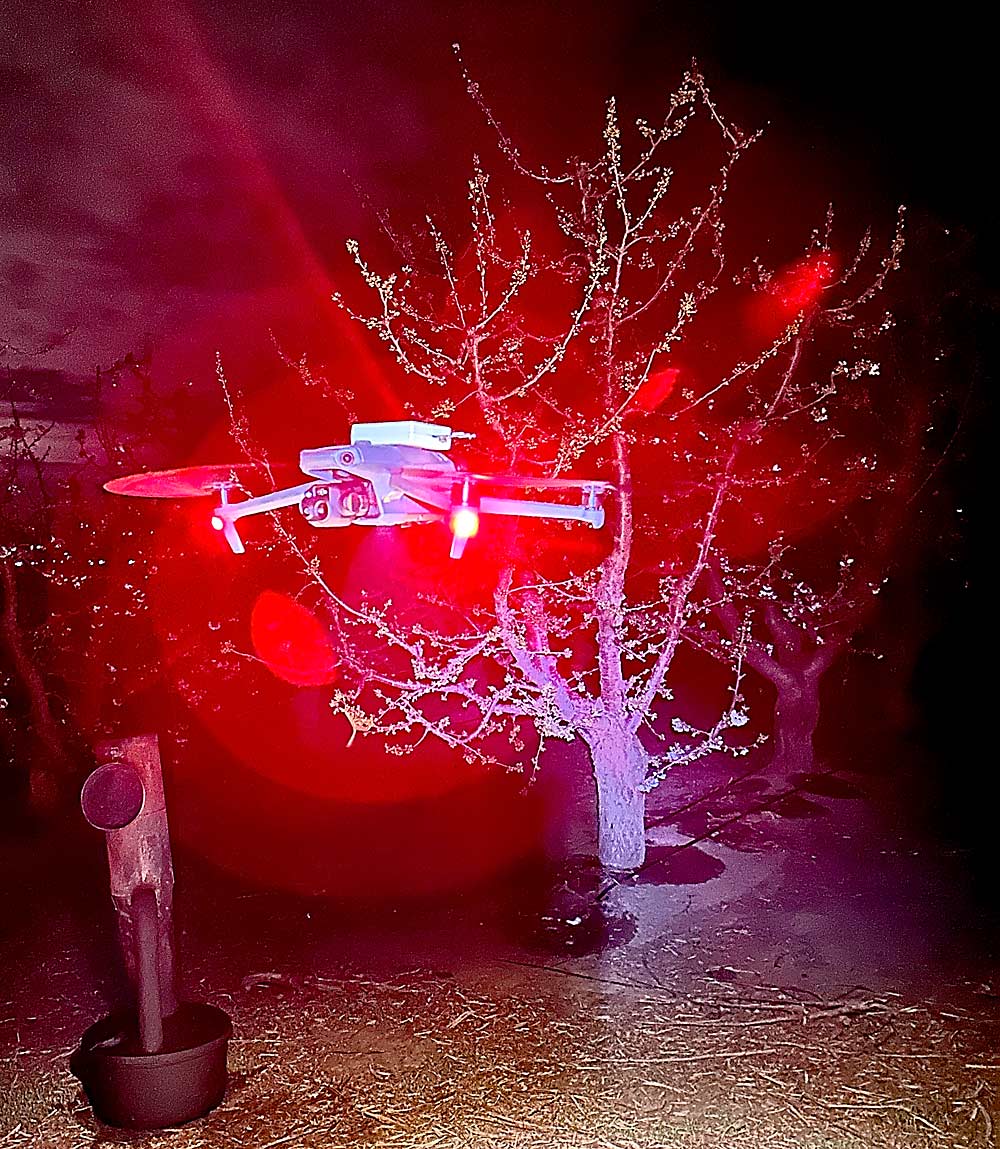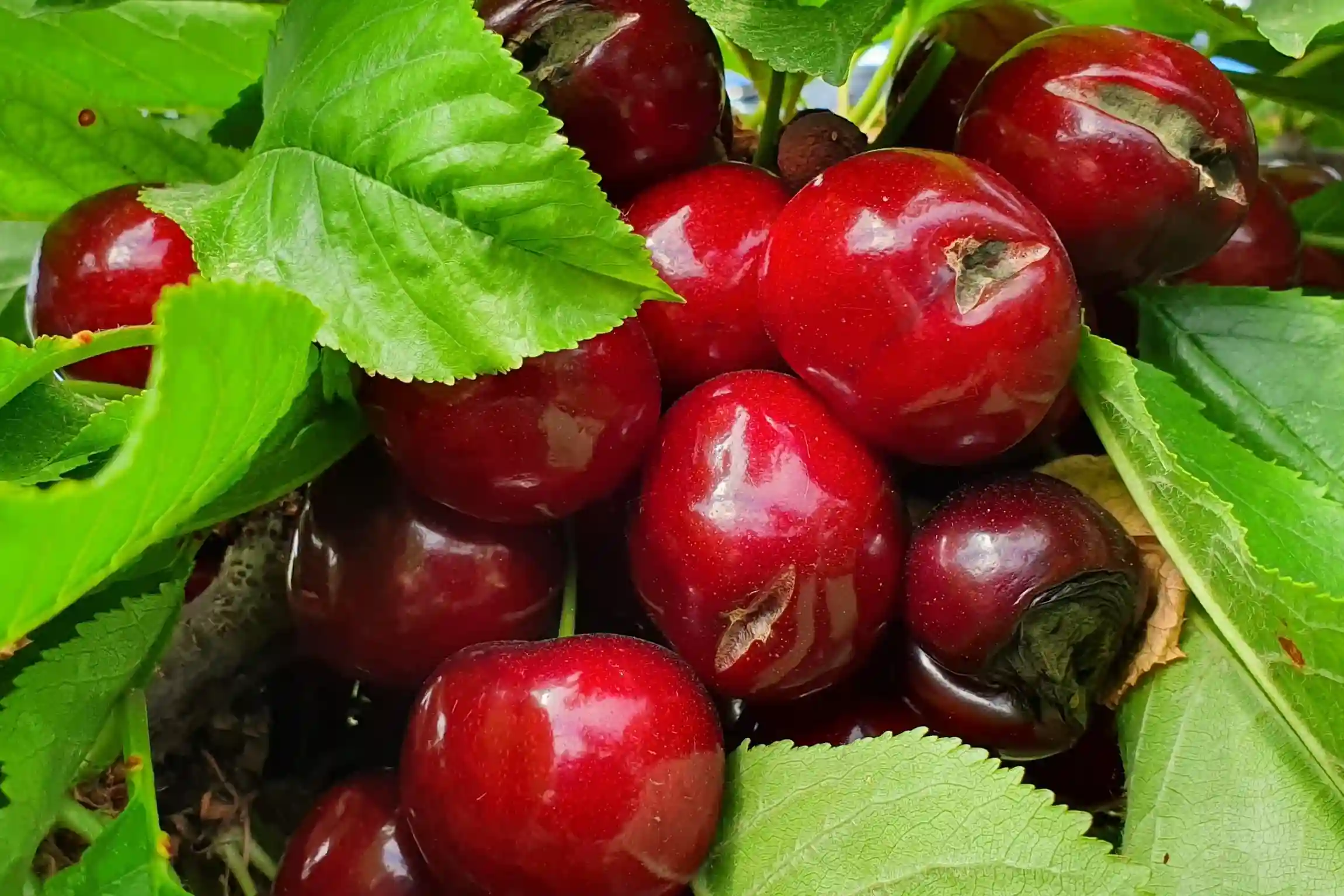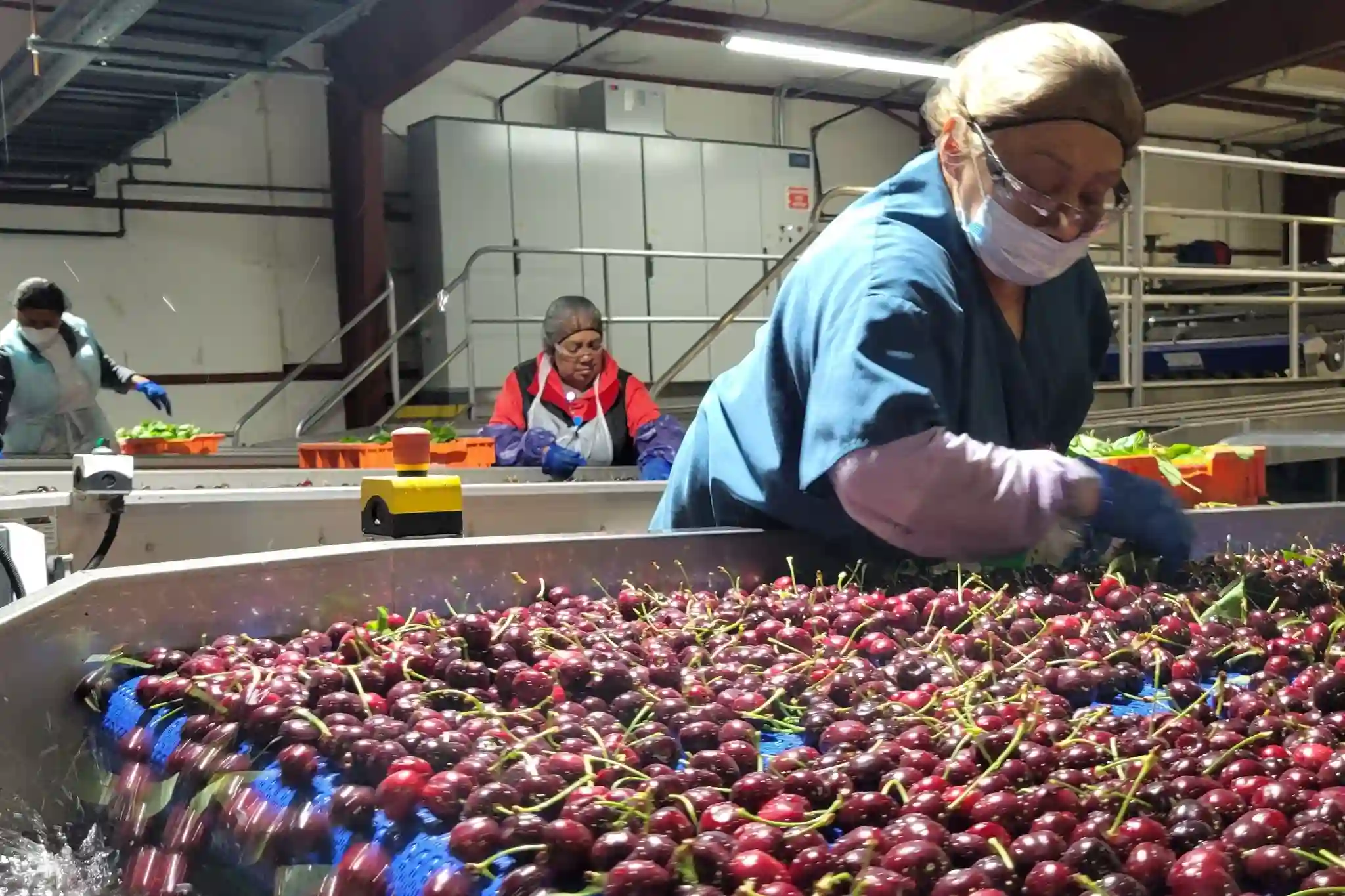Researchers at Washington State University are working on a project aimed at helping fruit growers mitigate the impact of frosts by providing more accurate information on air temperatures during cold nights.
By utilizing data from AgWeatherNet's Tier 1 stations, which record temperatures at both 1.5 meters and 9 meters above ground level, they have developed a model to estimate temperature inversions crucial for frost protection strategies. This information allows growers to assess the strength of inversions in their orchards and determine whether conditions are suitable for wind machines or additional heating.
The project also involves using drones equipped with thermal sensors to collect data on cold air movement through fruit orchards, aiding in the evaluation of wind machine effectiveness and the extension of their protection area.
The collaboration between researchers and farmers like Seth Hayden demonstrates the practical application of this technology, with Hayden integrating temperature sensors and automatic start systems into his wind machines for more efficient frost management.

Additionally, researchers have found that cherry buds tend to be several degrees cooler than the surrounding air during frost events until the dew point is reached, which slows down the cooling process. Understanding these temperature dynamics could lead to better predictions of lethal temperatures and improve frost management strategies.
Overall, the project aims to refine frost prediction models and provide growers with actionable data to optimize their frost protection measures, ultimately minimizing crop losses due to frost damage.
Read the full article: Good Fruit Grower
Images: Good Fruit Grower
Cherry Times - All rights reserved











